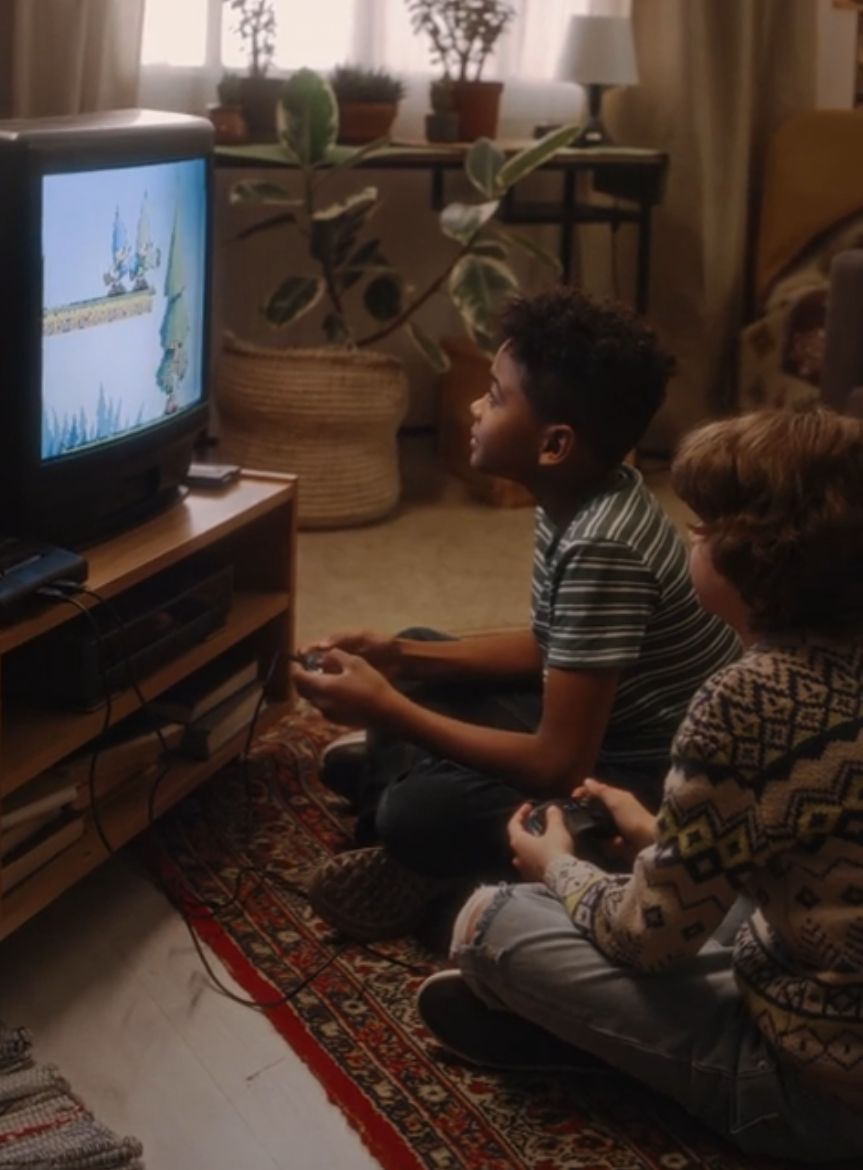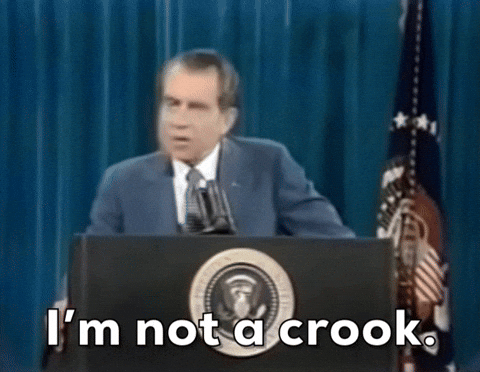- Inside Out Engineering
- Posts
- Talkin' 'bout my Generation
Talkin' 'bout my Generation
Why just talking about generational differences isn't solving the issue
Every generation looks at the one following and has an opinion.
“We do this better. They should be harder workers. They need to pay their dues. etc. etc.”
And no matter what industry you’re in, chances are you’re working with all 5 generations in some way.
Now I’m a millennial. And yes, I’ve heard all the stereotypes, the tropes, labels, etc.
So much so that in my corporate life, I proudly earned the title
“The Millennial with a Work Ethic.”

Gif by snl on Giphy
But believe it or not, I earned that title because I knew how to connect with every person I worked with, not because I was the first in and last out.
I catered my approach to solving problems based on the people I was partnered with, not the generation they presented as.
And the biggest thing I’ve learned is that these “generational differences” aren’t as stark as we think.
All humans want the same things:
To be valued.
To know that we’re contributing to something meaningful, something bigger than ourselves.
To be heard by those we hold dear.
Some generations have just given themselves permission to have it and every generation has their own way of going about it.
Believe it or not, the baby boomers and millennials were told the exact same things growing up:
That they were special from the moment they were born.
That they could do anything, be anything.
That they could also contribute to meaningful work. Their jobs had real purpose.
Generation X also were told this but they were told during a huge shift in our culture - where we began to have to seek out information for ourselves.
(cough cough Nixon & Watergate eras)
See the key to understanding a “generation” is to understand the environment in which they grew up.
Take Gen X for example. They were raised in a time where people had a plethora of outlets for news, where the generation before them - the Baby Boomers - had limited options. Baby Boomers believed whatever the media was telling them because they had no other voices telling them otherwise.
Gen X was the first generation (and yes some of our later born Baby Boomers too, the “cuspers”) that truly started to question the information they were given. Its a hallmark of that generation to be skeptical and want to search out information for themselves.
I could go on and on about each generation but I want to spend some time talking about the biggest generation we now have: our Gen Z’s.
They’ve been labeled “trendy, vapid, poor communicators, low work ethic etc.” (sounds a lot like what folks said about Millennials….) but why?
Reminding us what we’ve already heard: No matter what generation you’re in, the environment around you that shapes how experience the world.
So lets talk about that experience - Gen Z has come into this world and experienced as a child things like:
Conflict in Afghanistan
The Great Recession
Black Lives Matter
#MeToo Movement
Multiple mass shootings
and the cherry on top…. Covid-19
They also came into this world with technology. They’re the only generation essentially handed screens as babies.
Let’s put it in a bit of perspective for other generations -
The average Boomer didn’t have a cellphone until their late 30s.
The average Gen X had one in late-20s to early 30s.
The average Millennial had one early to late teens.
Imagine having a phone as a child. Most of us can’t.
Our childhoods were filled with running around with neighborhood friends playing kick the can, or calling our best friends home phone and having to talk to their parents before asking if they can come over to play video games.
Yes, we had to play team video games in the SAME ROOM back then.

image from motionarray
So looking at how Gen Z has been raised, it’s no wonder they’re different from the 4 previous generations.
But remember, all human beings - regardless of generation - want the same things….
To be valued.
To know that we’re contributing to something meaningful, something bigger than ourselves.
To be heard by those we hold dear.
So for example, we might think gen z is trendy but I believe there is something deeper here.
I believe they are searching for a sense of community. A sense of belonging.
Think about it.
I know for me matching is a huge love language - it makes me feel like I belong with my person or group. Yes I hated it as a kid, matching with my siblings - I knew they were my family so I had a desire to stand out! - but now, as an adult, I crave that sense of belonging. That easily identifiable thing that shows I’m part of this group.

Gif by laff_tv on Giphy
Ironically, a sense of community has become a bit of a pipe dream for us millennials - we want the homestead, the farm, the neighbors we can share our tomatoes with because we miss it. We miss being able to see and connect with the people we love easily.
We know what it feels like to walk to our best friends house, or play capture the flag with all the kids in the cul de sac, or to have your best friend over to play Mario cart.
I believe Gen Z is craving community the MOST because they’ve never experienced it. So they simulate it with these online shared trends - feeling a sense of belonging because they have the same water bottle or leggings or are drinking the same drinks.
This generation grew up with smart phones in their hands and while texting with a friend can in some cases release dopamine in the brain for a short term, it does not actually produce the connection building oxytocin that benefits our overall health.1
There are also studies that show texting can increase cortisol1 - I know it does for me! I get a big pang of anxiety whenever I hear my phone buzz. Whether it’s email, text, or some other sort of message. My cortisol always seems to increase until I pick up the phone and talk something out with the person on the other end. It truly soothes me to hear another person’s voice.
The challenge is, this generation hasn’t had the same opportunities previous generations have to deeply connect with people in person.
I know we’re very much in a digital world but that just means our human skills are even MORE valuable than before.
So how do we fix that? How do we create opportunities to foster human skills & emotional intelligence in upcoming generations and refine them in experienced ones?
It’s not just a question of education or training. It’s a question of what kind of world we’re building—and who we’re becoming while we build it.
1. Normalize Emotional Literacy, Early and Often
“Children are wired for connection. It's how we teach them shame that breaks that wiring.”
Human skills aka emotional intelligence—empathy, communication, self-awareness—aren’t soft. They’re foundational. And we don’t “teach” them once; we model them daily.
For younger generations:
Make emotional vocabulary as routine as reading and math.
Replace punishment with curiosity: “What happened here?” vs. “What’s wrong with you?”
Let schools be places where feeling isn’t failure, and connection is curriculum.
💡 Build classroom cultures where “I feel” is as valid as “I know.”
2. Invite the Experienced to Re-Learn, Not Recede
“When you’ve been doing something for a long time, the hardest thing isn’t learning. It’s unlearning.”
For older professionals, human skills often need refinement, not introduction. The opportunity lies in:
Creating spaces for reflection, not just performance.
Encouraging mentorship that goes both ways—reverse mentoring allows younger workers to teach emotional agility through fresh perspectives.
Rewarding humility, adaptability, and relational intelligence as core competencies, not optional extras.
💡 Refinement happens where experience meets openness—not where ego resists growth.
3. Design Systems That Reward Humanity, Not Just Output
“If you want to build a ship, don’t drum up people to collect wood. Teach them to long for the endless immensity of the sea.”
We can’t talk about fostering human skills if the systems we work and live in punish vulnerability, prioritize speed over care, and confuse burnout with dedication.
So we redesign:
Performance reviews that ask “Who did you lift up?” not just “What did you deliver?”
Leadership pipelines that include empathy interviews, not just business cases.
Cultures where it’s safe to say “I don’t know,” and brave to say “I need help.”
💡 Human skills flourish in psychologically safe environments—so we build them intentionally.
4. Make Curiosity the Connector Between Generations
“Generosity doesn’t start with giving. It starts with listening.”
Young professionals want meaning. Seasoned ones want to matter. The bridge? Mutual curiosity.
Host intergenerational storytelling sessions.
Create feedback loops where each generation asks, listens, and learns from the other.
Design mentorship as co-growth, not one-directional teaching.
💡 Curiosity doesn’t flatten generations—it threads them together.
5. Model What We Hope to Multiply
You can’t delegate emotional courage. You have to go first.
If we want kids to name their feelings, we name ours.
If we want leaders to lead with empathy, we show empathy when they fail.
If we want workplaces that humanize performance, we treat people as humans first, roles second.
💡 The next generation doesn’t need our perfection. They need our example.
Final Thoughts:
Human skills & being emotionally intelligent are not a checklist. They’re a lifelong practice of becoming—individually and collectively.
We foster them in the young by planting seeds of safety and self-worth.
We refine them in the experienced by making space for growth without shame.
In both, the magic happens when we choose connection over control, curiosity over certainty, and courage over comfort—again and again.

If this is something you find interesting or know you want to develop your emotional intelligence, follow along with me!
I’ll be telling more stories (of my and other engineers’ experiences) that showcase how I built this skill, stories of how this skill transformed the lives of others like us, along with tips and tools to bring into your life.
And if you’re looking to accelerate your growth in emotional intelligence, book a call with me and we can build a pathway to your goals together!
Book a call: https://calendly.com/nikki-insideoutengineering
Connect with me: https://www.linkedin.com/in/nikki-maginn/
Sources

Reply